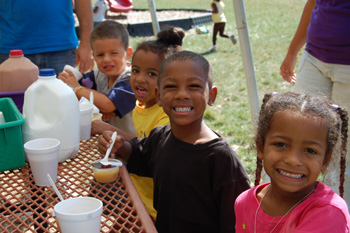Despite what you may think, the jelly beans in your child’s Easter basket probably didn’t cause his energetic behavior over the holidays. The sugar/activity debate flares up every time a sugar-coated holiday arrives, peaking at Halloween, the undisputed king of candy holidays. Easter with its baskets full of jelly beans, chocolate rabbits and marshmallow chicks is only No. 2 on the sugar hit parade; but garners its share of criticism from sugar foes.
 Scientists, nutritionists, parents and childcare providers have been debating the connection between sugar and children’s activity levels since 1973 when the allergist Dr. Benjamin Feingold began advocating a diet free of food coloring, artificial flavoring and preservatives for hyperactive children. Dr. Feingold didn’t include a prohibition against sugar in his diet, but refined sugar was soon added to the “bad foods” list as the healthy foods movement took root and began to spread. Since then, several well-documented scientific studies have tested the relationship between sugar ingestion and child activity levels; all coming to the conclusion that, in most cases, sugar does not affect child behavior or cause hyperactivity. However, scientists admit that sugar may have a slight effect on the behavior of a small number of children.
Scientists, nutritionists, parents and childcare providers have been debating the connection between sugar and children’s activity levels since 1973 when the allergist Dr. Benjamin Feingold began advocating a diet free of food coloring, artificial flavoring and preservatives for hyperactive children. Dr. Feingold didn’t include a prohibition against sugar in his diet, but refined sugar was soon added to the “bad foods” list as the healthy foods movement took root and began to spread. Since then, several well-documented scientific studies have tested the relationship between sugar ingestion and child activity levels; all coming to the conclusion that, in most cases, sugar does not affect child behavior or cause hyperactivity. However, scientists admit that sugar may have a slight effect on the behavior of a small number of children.
Despite scientific findings, parents are the best judge of how sweets impact their child and may find it desirable to limit sweets in their child’s diet. The proven link between eating too many sugary foods and weight gain, which can lead to childhood obesity and a host of additional problems, is reason enough to limit the amount of candy your child is allowed to have.






